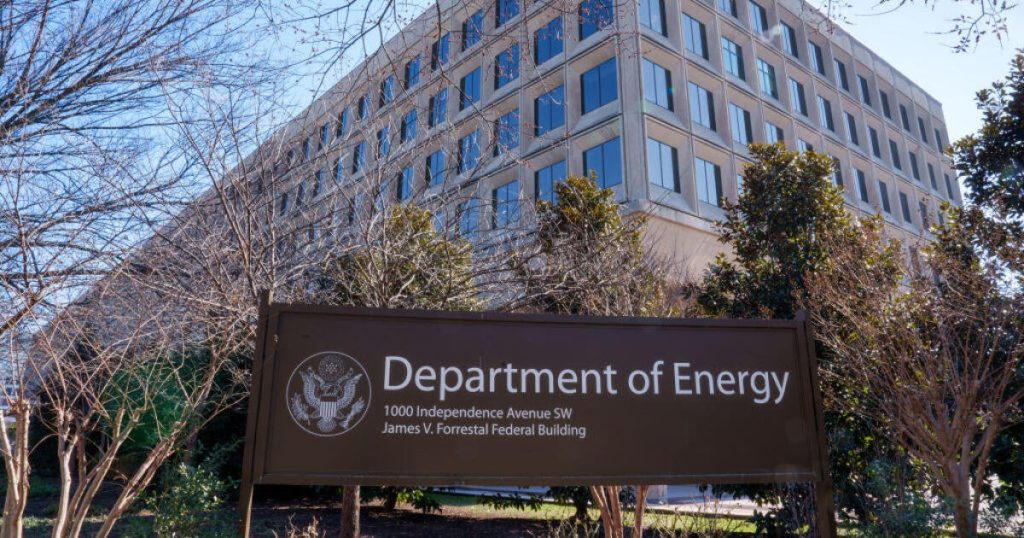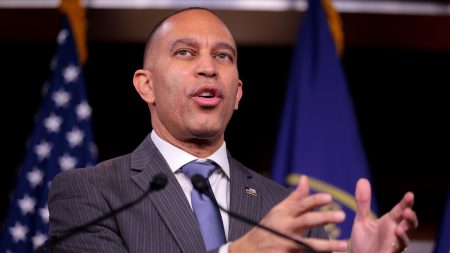The Trump Administration’s Nuclear Workforce Firing Fiasco: A Recipe for Disaster?
Introduction: A Sudden and Confusing Turn of Events
In a shocking and abrupt move, the Trump administration, through its Department of Government Efficiency (DOGE) initiative, fired hundreds of federal employees working on the nation’s nuclear weapons programs. These employees were part of the National Nuclear Security Administration (NNSA), a critical agency responsible for managing the country’s nuclear stockpile and ensuring nuclear safety. The firings, which occurred on February 13, 2025, left many workers stunned and locked out of their systems even before they were officially notified. By Friday, February 14, the administration reversed course, rescinding the firings for all but 28 employees. This chaotic episode has raised serious concerns about the impact of blind cost-cutting on national security and the safety of communities near nuclear sites.
The Firings: A Misguided Approach to Cost-Cutting
The firings were part of a broader effort by DOGE to slash costs across the federal government, including the Department of Energy. However, the dismissals targeted employees whose work is far from trivial. Among those let go were workers at the Pantex Plant near Amarillo, Texas, where roughly 30% of the staff was cut. This facility is responsible for reassembling nuclear warheads, a task requiring the highest levels of security clearance and expertise. Additionally, employees at other critical sites, such as the Savannah River National Laboratory in South Carolina, the Hanford Nuclear Site in Washington, and the Oak Ridge Reservation in Tennessee, were also affected. These sites manage radioactive waste and prevent contamination in surrounding communities.
The firings were not limited to administrative roles, as the Department of Energy later claimed. Many of those terminated were involved in nuclear safety, waste management, and other critical functions. Their sudden dismissal not only disrupted the operations of these facilities but also sent a chilling message to the remaining workforce. Daryl Kimball, executive director of the Arms Control Association, criticized DOGE for its lack of understanding of the NNSA’s role, stating, "They don’t seem to realize that it’s actually the department of nuclear weapons more than it is the Department of Energy."
The Reversal: Too Little, Too Late?
By late Friday night, Teresa Robbins, the acting director of the NNSA, issued a memo rescinding the firings for all but 28 employees. While this move was a partial reversal, it did little to ease the concerns of those affected. The abrupt nature of the firings and the subsequent reversal left many employees questioning the stability of their jobs and the competence of the administration. Some workers, even after being reinstated, were hesitant to return, fearing further uncertainty.
The incident also highlighted the disconnect between DOGE’s cost-cutting agenda and the realities of managing a nuclear arsenal. The NNSA is currently in the midst of a $750 billion modernization effort, which includes the development of new intercontinental ballistic missiles, stealth bombers, and submarine-launched warheads. At a time when the agency is heavily recruiting to replace retiring personnel, the firings have only added to the challenges of maintaining institutional knowledge and expertise.
The critics’ perspective: A Reckless Approach to National Security
The firings have been met with widespread criticism from experts and lawmakers alike. Rob Plonski, a senior staffer at the NNSA, called the move "reckless at best and adversarially opportunistic at worst." Rep. Marcy Kaptur of Ohio and Sen. Patty Murray of Washington, both Democrats, described the firings as "utterly callous and dangerous." These criticisms stem from the understanding that the NNSA’s work goes far beyond administrative tasks. It includes maintaining the safety and security of the nation’s nuclear arsenal, managing radioactive waste, and ensuring that contaminated sites do not pose a risk to nearby communities.
Experts like Edwin Lyman, director of nuclear power safety at the Union of Concerned Scientists, warn that the firings could have far-reaching consequences. "I think the signal to U.S. adversaries is pretty clear: throw a monkey wrench in the whole national security apparatus and cause disarray," Lyman said. Such instability could undermine the nation’s ability to maintain its nuclear deterrent and respond to emerging threats.
The Human Cost: A Demoralized Workforce and a Loss of Expertise
The firings have taken a toll on the morale of federal employees working on nuclear programs. Many of these workers have dedicated their careers to ensuring the safety and security of the nation’s nuclear arsenal. The sudden and arbitrary nature of the firings has left them feeling undervalued and uncertain about their future. This sense of instability is particularly concerning at a time when the NNSA is undergoing a major modernization effort.
The agency has been actively hiring to replace retiring personnel, with 60% of the workforce having joined in the past five years. However, the recent firings have created a climate of fear and distrust, which could deter qualified individuals from joining the agency. The loss of experienced employees and the difficulty in retaining new hires could have long-term consequences for the NNSA’s ability to carry out its mission effectively.
Conclusion: A Wake-Up Call for Responsible Governance
The Trump administration’s decision to fire and then rehire hundreds of NNSA employees serves as a stark reminder of the dangers of blind cost-cutting and the importance of prioritizing national security. The NNSA’s work is not just about managing a budget; it is about safeguarding the nation’s nuclear arsenal and protecting communities from the risks associated with nuclear waste.
As the administration continues to pursue its efficiency agenda, it must do so with a deep understanding of the critical roles that federal employees play in maintaining national security. Arbitrary firings and reversals are not only demoralizing to the workforce but also undermine the nation’s ability to respond to threats both at home and abroad. The recent incident should serve as a wake-up call for policymakers to approach budget cuts with caution and to prioritize the safety and security of the nation above all else.















